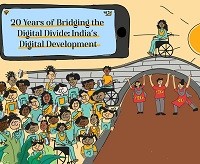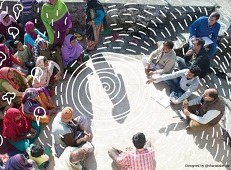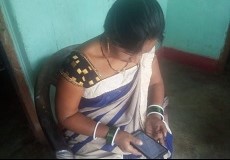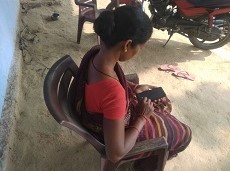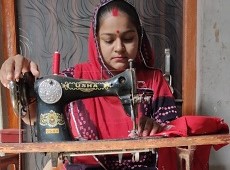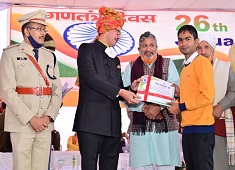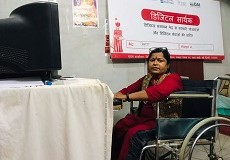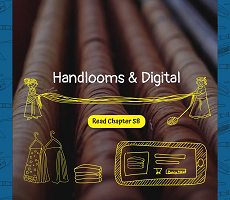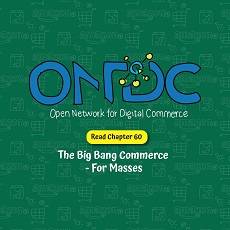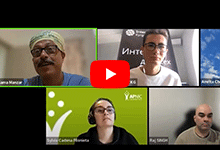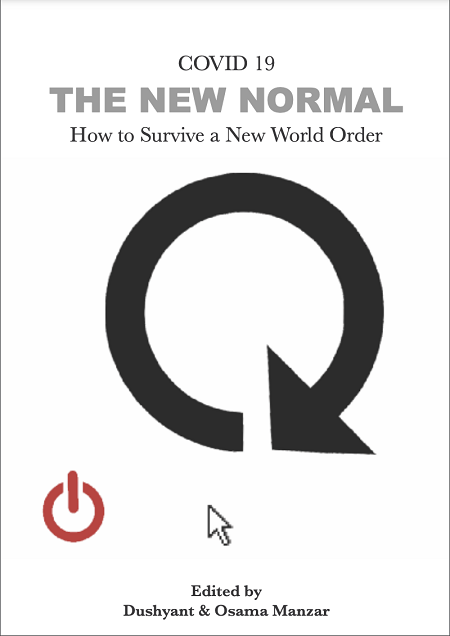

The Internet came to India in 1995 and it brought a host of opportunities for this rising economy and developing nation. A few pioneers in the field grabbed this opportunity with both hands and got onto the Internet exploring its functions and its wide scope. In 2002 on the 16th of December an idea was established with the formation of the Digital Empowerment Foundation (DEF). DEF took the first step in India’s story of digital development. The basis of DEF’s formation was the fact that India was an information poor country. Read More


The line between providing government services like Google predicts your next possible search comes at a huge trade-off. Clearly, the line between a techno-utopia and a surveillance dystopia can be really thin. India needs a proper data protection law drafted carefully drafted with due consultations with stakeholders. Let’s start by running down some numbers. It is a fact that India is both, one of the most connected countries and one of the most unconnected countries. For example, internet users do not number more than 700 million of India’s population of 1.35 billion. Of these, only 300 million people use the internet regularly; the rest are either token users or, as is called, not ‘habitual users’. Read More


India is a country of great cultural, linguistic and geographical diversity. Although there have been various government-led efforts to digitally connect the entire country, several regions remain underserved. Ziro block in Arunachal Pradesh is one such region. In recent times, it has garnered wide-ranging attention and interest in the Ziro Music Festival it hosts annually, yet the area remains underserved with digital connectivity. Ziro township is the district headquarters of Lower Subansiri and the only town in the district. The valley is home to around 26,000 people of the Apatani tribe. The villages in the region have their own customary system in the form of a traditional village council. Read More
Basanti Devi, 24, comes from a low-income family in the village of Siswa Tajpur in Bihar. She runs a small business selling solar light bulbs. She uses Facebook, YouTube, and WhatsApp on her smartphone for her business. Phulwanti Devi, her trainer has introduced her to the MeraBills app so that she can record all her transactions. She uses the money she earns from her business to purchase things she needs for her home. She has aspirations and ambitions to grow and make more money in the future. After receiving training on digital and financial literacy from a master trainer, Basanti Devi’s understanding of the internet improved, and she can now do mobile recharges, cash withdrawals etc. Read More
Gudiya Devi from Jalima village in Ranchi runs a small beauty parlour in the front side of her house. Her husband is a farmer and struggles to run the house with his income. She has three small kids and they are studying in a government primary school. She belongs to a joint family and she manages her beauty parlour along with household responsibilities. She earns a reasonable amount of money for her family members and has become a helping hand for her husband. She is well educated and is always eager to learn something new to take her business to the next level. At the initial stage she had a feature phone that she would use only to make calls but later she was able to purchase a smartphone and learnt its basic functions. Read More
Madhumati Devi runs a small business and is involved in cattle farming and cultivation. She has her own fertile land and grows different seasonal vegetables and sells them in the market to vendors. Her husband is an autorickshaw driver and it is difficult for the house to run on his income. They have two children, both of them are studying in a government Higher Secondary school. At the initial stages of her business she only had a feature phone to make calls but with time she developed her cattle business and was able to purchase a smartphone. Earlier she would note down all her business debts and expenses on a small piece of paper with money receipt amount details of customers and she would always be unsure since it wasn’t properly recorded. Read More
In spite of being from a financially backward family, Meenakshi, 26 from Barmer, Rajasthan, has always had the desire to do something to support her family, despite having never stepped outside of her comfort zone. Although she operates a tailoring shop where she sells clothing, blouses, etc., managing the finances is always a challenge for her. She always has to depend on others, who will look after the financial accounts, primarily because she was unaware of the transition from traditional payments to the digital payments system. The new digital techniques were also challenging for Meenakshi to follow. Thanks to Pappu Kanwar, a master trainer from Barmer, Meenakshi is now reaping the benefits of Project Revive. Read More
Sanjida is a woman entrepreneur; she runs a small clothes shop. She is not well-educated. One day Poonam came to her house and said, “I work for an organization called Digital Empowerment Foundation, and I’ve brought some programs related to digital book keeping and literacy for women.” Poonam is a master trainer who is training these women. Sanjida was told to use an app called MeraBills to estimate the expenses and incomes to understand how much profit or loss she is making. She agreed to work with Poonam. She has completed training on digital and financial literacy as well as training on MeraBills app, but she wants to learn more. She has learned a lot like the use of Google search, YouTube, saving contacts, photo-video editing etc. Read More

This is the story of a student named G. Akshaya from class nine in a government school in Narsimhulapet village. Before attending STEM classes she had stage fright and she was underconfident. Initially she wasn’t a good performer in the STEM classes. She learned many things while attending regular STEM sessions and this helped her build confidence slowly. Now she is able to participate in many group discussions which are conducted in the school about many different topics like the pandemic, village based issues and about the environment. Her friends and teachers were impressed by her performance. She has participated actively in every activity from STEM. Read More

Alam Khan got an Appreciation Certificate for his constant efforts in providing Covid 19 vaccination. He helped in mobilising 8,473 citizens along with interventions of other development partners. He was awarded by the Deputy Commissioner of Nuh district Mr Shakti Singh. Alam Khan was also awarded by Deputy Commissioner Mr Pankaj Kumar, IAS for the excellent work in registration of beneficiaries in PM-SYM (Pradhanmantri Shram Yogi Mandhan) at the highest level in the district of Nuh. Parvez is DEF’s SoochnaPreneur in the district of Barabanki, Uttar Pradesh. In the financial year 2021-22 he filed an IT return of more than 250,000 rupees, averaging over 20,000 rupees per month. Read More
A mother of two, she realised the importance of being independent when her family was on the verge of poverty. She said “we were almost on the streets when I was approached by Abhinav sir (DEF’s District Coordinator). He asked me if I wanted to become an entrepreneur and of course I said yes.” Kirti had no idea that with just one printer and one tablet she would become an independent woman, she said “I was given digital training, a printer, a tablet and a lot of guidance from the DEF team. I never thought that a printer and a tablet could change my life completely. These two digital devices brought my family out of the financial crisis we were going through.” Read More
Her inclination to service got her interested in DEF. Looking at the poor conditions in which some women from her village lived, she started teaching them to stitch for free so that they could earn some money through their work. Considering these challenges, she is extremely delighted that most of the work can now be done online through the training provided to her by DEF and helps others who face these difficulties on a daily basis by training them to be independent too. She talks about the changes in her community where it is hard for women to step out of the house. She sees them communicating well now as they are empowered to use digital tools. Read More

This month, in Series II, we had the team behind a Community Owned Wireless (COW) Mesh in Tumkur, Karnataka and a Community Network in an Earthquake Refugee Colony from Khalte, Nepal. The first case was presented by the community media activists T.B Dinesh, Shalini and the Janatsu team who is running a CN in Tumkur of Karnataka, India. Tumkur is 70 kilometres from Bangalore city, but with an elevation of over 800m, the villages where the Janatsu Collective is helping run the community Network is a place where you’ll have to travel far to get coverage or even get an OTP. Like most of rural India, caste is an existing reality in these villages. here is an upper caste village and a lower caste one. Read More
On 7th August, 1905, the Swadeshi Movement was launched in Town Hall, Calcutta, as part of the larger Indian independence struggle, responding to the British orders of partitioning Bengal. One of the core ideas, from which last decades Make in India has been inspired, was the boycott of foreign goods and a focus on locally made, handloom clothes. It was in commemoration of this that 110 years later in 2015, the first national handloom day was inaugurated. What happens in the handloom sector is just as with government trying to enact welfare schemes in any other disconnected area. One may disagree or debate about the number or degree of schemes and other packages that are being given to support the weavers, but at a level of implementation, they run into problems. There is little awareness of these schemes, and adding to the woes is a lack of markets... Read More
India in 75. DEF is just 20. Internet in India is 27. But the progress of Internet is India, starting as World Wide Web and Internet access was available through 9.6Kbps dial-up line to completely overwhelmed by Mobile and Social Media, Internet is completely dead. What we know today as Internet is: a mobile device on a palm and accessing one these seven tools: WhatsApp, Google or Facebook or Amazon or Instagram or LinkedIn or Twitter; and nothing gets completed unless you share your digitalised form of Aadhaar number for anything and everything. And, finally, we should ask has the Internet strengthened democracy or weakened it by converting the people into a consumer than a citizen.As India celebrates her seventy-five years of freedom from colonial rule, we take a look at our work in trying to connect communities with the seventy-five qualities we work with- as well as some updates on the state of our independence. Read More
Speaking to the news agency ANI earlier this year, Prime Minister Narendra Modi had been heard saying that the "government has no business to be in business." This was in context of major disinvestment plans by the Finance Minister Nirmala Sitaraman this budget, a policy the BJP led NDA government had been following throughout their term, as seen with the likes of Air India, ONGC/HPCL and LIC and perhaps soon BSNL and even the Indian Railways. On the other hand, it has reached a state where the government cannot help turn a blind eye on the huge e-commerce sector in India, which is now mostly held by a few monopolies. In this context, last month, the Indian government announced the launch of Open Network For Digital Commerce, an attempted alternative against the dominance of multinational giants like Amazon and Walmart (which owns a majority stake in Flipkart). The ONDC is a non-profit company where once the other giants integrate into it, would display products from all platforms on each other's apps.Read More




This month we continued with the A-CODE DEFDialogue Series. Community Network XChange was also held during this month; the recording for which can be found here:

I started wearing handloom clothings for sheer comfort, then for its look and texture. However, when I started going deeper into the origin of handloom clothings, I realised the deepened stories of historical significance, geographical uniqueness, human innovation and perseverance, scientific wisdom, and stories of blood, sweat, poverty, beauty, and mathematics. At the end, when I wear a handloom or a product of an artisan, and if I am doing it consciously, I have a story to tell behind each of the beauty that I carry on by body. Read More
DEF’s Digital Excellence Centre (DDEC) was inaugurated on the 20th of August 2022 by eminent personalities of the Telangana government and other leaders in the social sector. Mr. Jayesh Ranjan, IAS, Principal Secretary of the Industries & Commerce (I&C) and Information Technology (IT) Departments of the Telangana Government, was the Chief Guest. Mr. Osama Manzar, Founder and Director of Digital Empowerment Foundation (DEF), Dr. Amir Ullah Khan, Mr. Syed Ali, Board Member of USIPI, Nahid Jubair, Deputy Director at DEF, Mr. Shrikant Sinha, CEO of Telangana Academy for Skill & Knowledge (TASK) and local community members were present. The centre offers a host of programmes, not only for the students but for people of all age groups. The training programs include various initiatives of DEF such as SoochnaPreneur, Makerspace, Digital Financial Inclusion, Digital Skilling, STEM for Girls, and Skill Bot. Read More
With the onset of the third wave we are crowdfunding digital devices so that underprivileged students are not deprived of education like they were during the first two waves of the pandemic.
info@defindia.org | def@defindia.net
You are receiving our newsletter because you opted-in for the purpose of receiving Digital Footprints, a monthly newsletter on digital development. If you wish to withdraw your consent and stop hearing from us, simply click here to unsubscribe
